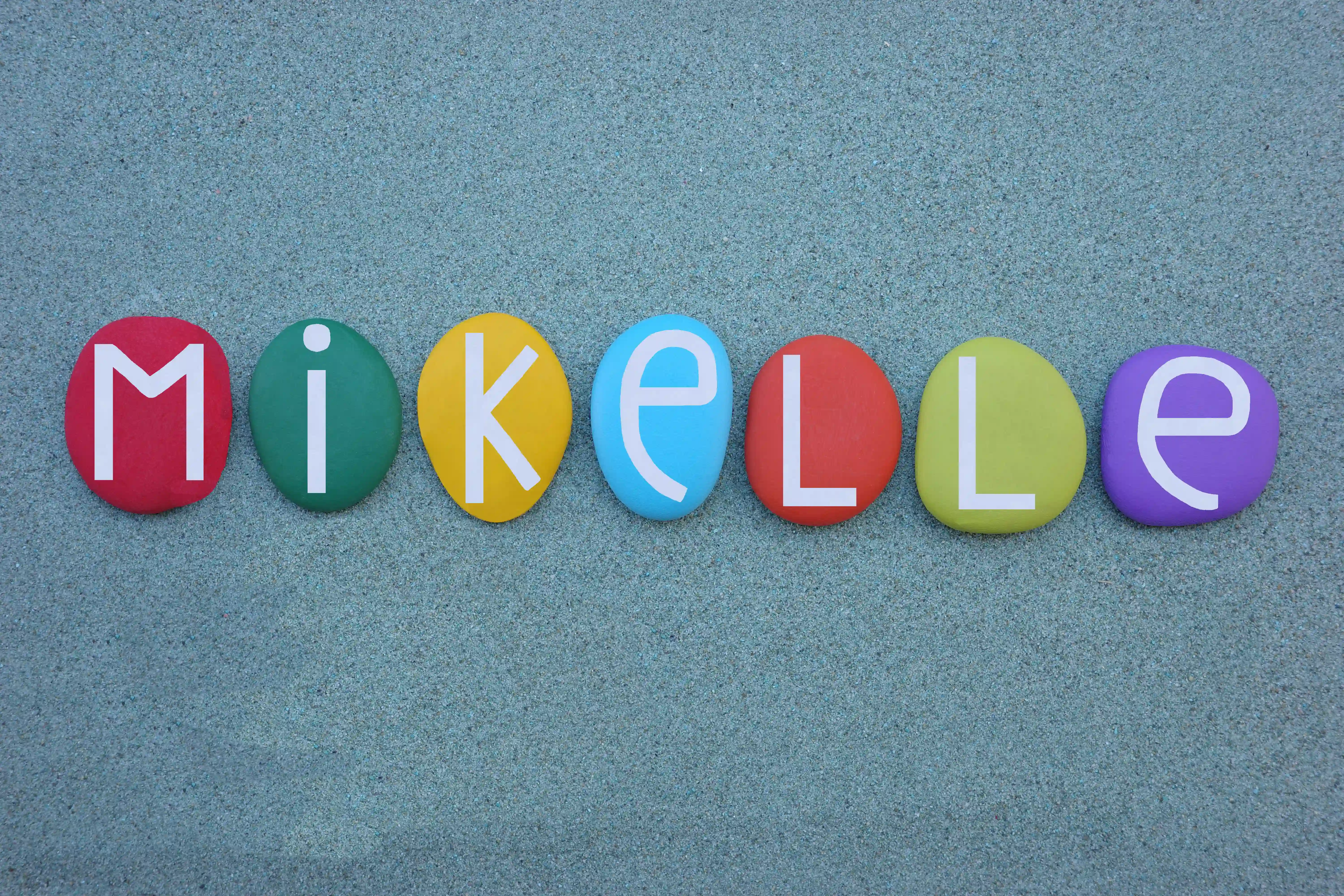Best Ideas for Name Games and Activities for Kids
Name games help kids remember each other and feel included fast. These easy group activities build confidence, listening skills, and friendly interaction, making them useful for classrooms, camps, and teams.

Name games for kids to learn names and build connection
The beginning of a school or kindergarten year can be challenging for children. They may not be used to a new schedule, lots of new information, and, of course, stepping into a new community. The kids may feel shy or anxious about getting to know others and making new friends. Learning each other’s names helps introduce them to their group mates and break the ice. It can be done in a fun and memorable way. In this article, we offer various ideas for name games for kids of different age groups.
The Importance of Name Games in Building Classroom Community
A healthy classroom community is essential for a productive learning process. You can’t underestimate the significance of a positive atmosphere in a children’s group. Knowing each other’s names helps kids feel valued. This can lead to stronger social connections and a more collaborative learning environment. A name game for kids is an excellent icebreaker for the first day of school, when the kids may feel intimidated.
Besides, kids are more likely to engage in class when they feel comfortable with their peers. Name games can set the basis for active involvement in different team and individual exercises.
Making the First Day of School Fun and Engaging with Name Games
The first day of school is crucial for a warm climate in your classroom. Teachers and new students have no second chance to make a good first impression. Adding relevant, interactive activities will help create positive experiences and elevate students’ moods at this important time.
Including fun name games for kindergarten also promotes active listening and interactions. With supportive and engaged teachers, you have a higher chance of creating a welcoming environment. You can build a sense of unity and make every member feel heard and valued.

Help your child
grow with Keiki
We’ll help you turn everyday screen time into real learning progress.
Try KeikiInteractive Preschool Name Games for Young Students
Here are the playful ways to introduce kids to each other and help them memorize everyone's names. These games will help you do it interactively and fun.
1. Name Toss
During this name game for kids, participants stand in a circle and toss a ball to each other while saying the name of the person they are throwing to. This engaging game helps quickly memorize the names of other members and encourages active participation. All you need is a ball and a few minutes to complete it.
2. Name Bingo
During this game, the participants receive bingo cards with different names and need to find people with those names to mark their cards. This activity is suitable for different age groups and group sizes. All you need to do is create bingo cards with the names of participants beforehand and distribute them. The kids can then chat with each other, and this name game for kindergarten can serve as an icebreaker.
3. Pass the Name
The students sit in a circle and pass an object around, each saying their name and something about themselves when they receive it. They share personal information, which gives hints to others to start conversations. This activity helps foster close relationships and create a sense of community.
4. Name Chain
During this game, each participant says their name and repeats the names of all previous participants in order. It encourages active listening and allows recalling names through repetition. You need to ensure the students are seated or standing so that allows them to hear each other clearly.
5. Alliteration Introduction
The kids introduce themselves using an adjective that starts with the same letter as their name. For example, Joyful John, Sunny Sarah, etc. The players need to think of an adjective that not only starts with the same letter but also represents a certain characteristic, such as your personality trait, hair color, and so on.
Engaging Name Learning Games for Older Students
These are suggestions for enjoyable activities to introduce learners to each other. They draw the participants’ attention and keep them engaged for a long time.
6. Two Truths and a Name
Each player states two true facts and one false fact about themselves, along with their name. Others guess which statement is false. This game encourages active listening and learning interesting things about each other. After that, the students know each other and discover the things they have in common. This makes it easier for them to start communicating with each other.
7. Snowball Fight
The children write their names and an interesting fact about themselves on pieces of paper, crumple it into a snowball shape, and throw it. Each member picks up a snowball and reads the information aloud. This activity helps improve public speaking skills and memorize information about each other.
8. Name Memory Game
During this name game activity, the kids stand in a circle and say their names along with a unique gesture. The next person repeats the names and gestures before adding their own. It helps remember each other’s names in a fun and original way. This game requires no preparation and usually doesn’t take much time.
9. Name Pictionary
The kids draw something related to their name or a nickname without writing the name, and others guess the name based on the drawing. In the end, you can create a pictionary with the names of all the group members. Although it may take more time than the previous options, it fosters creativity, communication, and visual thinking.
10. Name Impulse
This is a very fast and active game. The children sit in a circle, and the leader says a name. The person whose name is called must quickly say another player’s name, and the process continues. This activity suits preschool kids as it doesn’t take much time and is enjoyable to play.

Creative and Collaborative Name Learning Games
These activities can spark creativity and encourage communication while the kids learn each other’s names. They promote quick thinking and help players get to know each other in an original way.
11. Name Acrostic Poems
You can create a poem where each line starts with a letter from a person’s name. This creative activity helps develop storytelling skills and sentence structure. This game will be suitable for preschool kids but may be too challenging for kindergarteners. It requires very little preparation and is enjoyable.
12. Name Story
The kids write a short story using a name where each letter is the start of a sentence. They can write about themselves or other group members. It develops creative writing and storytelling skills. The children can outline the plot of the story for each other.
13. Name Puzzle
This name game for kids involves creating puzzles (like crosswords or word searches) using names. It can be personalized for each group. The teacher can prepare the puzzles themselves or engage a group in creating them. Then, it will be even more fun solving it together. This activity enhances problem-solving skills and attention to detail.
14. Guess Who I Am
This is a traditional game where the children describe a person using clues, and others guess who it is. It helps people learn more about each other and break the ice. The teacher can gather facts about the kids and write the ideas for clues. It can be a fun activity for different ages.
15. Spider Web
During this activity, the players sit in a circle and toss a ball of yarn, holding on to their part of the string to create a web. They can say their name once it’s their turn to toss a ball. This game is focused on teamwork and communication. Besides, it is easy to set up and enjoyable.
Outdoor Name Games for Active Learning
These activities will be suitable for outdoor parties and gatherings. They help keep the kids physically active and entertained. You can try them for kids’ parties where the children don’t know each other yet.
16. Name Relay Race
The participants of this game are divided into teams. They run a relay race where each member has to say or spell out their name before passing the baton. It encourages teamwork, communication, and quick thinking and helps kids remember each other’s names. You need to prepare batons and set up the relay course.
17. Alphabetical Order Challenge
This is a fast activity in which the kids get a list of names and must arrange themselves in alphabetical order as quickly as possible. It is beneficial for developing quick thinking and attention to detail. You need to get a list of participants and designate a space for this challenge.
18. Name Treasure Hunt
The children’s names are hidden around an area, and players have to find and match them to the correct people. This contest is focused on exploration and working in teams. It also involves physical activity, which is ideal for keeping children busy. It will be ideal for birthday parties where the kids don’t know each other yet.
19. Balloon Pop Name Game
The names are written on pieces of paper placed inside balloons. The participants have to pop the balloons to retrieve and learn the names. This interactive and enjoyable activity helps memorize the names in a fun and nontrivial way. However, it does require some preparation beforehand.
20. Animal Name Game
During this activity, the kids are assigned an animal. They can choose them themselves or get one randomly. The participants need to memorize and use each other’s animal names first. This exercise is ideal for building association skills and improving creativity.
Help your child thrive with playful learning
Turn screen time into real growth with Keiki’s educational games.
Try KeikiBenefits of Name Games for Social-Emotional Learning
Incorporating these activities in your group’s first meeting can provide numerous advantages. Here are the most significant benefits of these fun name games for the educational process.
- Building a Sense of Belonging
When kids actively learn and use each other’s names, you can set an environment where everyone feels recognized and valued. It helps break down barriers and simplify building relationships.
- Encouraging Positive Interactions
A supportive and inclusive atmosphere helps kids feel more comfortable and makes them more likely to develop trust with other members. The students practice giving and receiving support, which improves their ability to work together and build relationships.
- Promoting Active Listening and Memory
In a game where students recall and repeat the names and things about others, they need to listen carefully and retain information. These skills are vital to other areas of learning and social interaction. They help students become more attentive and responsive communicators.
- Enhancing Classroom Engagement
Active students are more likely to be motivated and invested in the learning process. Name games also serve as icebreakers, reducing anxiety and making kids feel more comfortable. Keep in mind that some preschool name games may require constant supervision from the adults. Before starting them, you need to make sure you have a safe area of sufficient size.
Keiki World App: Engaging Learning Activities for Kids
This online platform is designed for children aged 1–6. Keiki World App includes various educational activities and games for children. With it, the kids can develop essential academic skills while enjoying the fun and interactive exercises. This app aims to make their screen time more productive and effective for learning. Here are the benefits of using Keiki for your kid’s education:
- The exercises in this application are focused on developing basic skills, such as numeracy and literacy.
- This platform has an intuitive and straightforward interface for both kids and adults. It encourages independent learning without the need for ongoing parental supervision and assistance.
- This app offers fun and interactive games, videos, cartoons, and worksheets.
- Keiki World App includes parental support functionality so parents can monitor their child’s learning journey and provide assistance.
- This platform offers a safe environment for kids to interact with and includes age-appropriate content only.
You can choose from different plans based on your child’s age, topic, and skills to work on.
Conclusion
Name games can be excellent options for a positive start to the learning process. They help the participants get to know each other and break the ice in communication and collaboration. We hope that you’ve found some helpful ideas for name games in our article.






